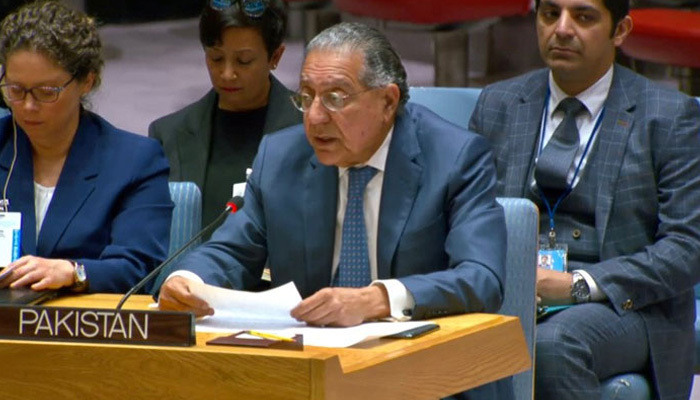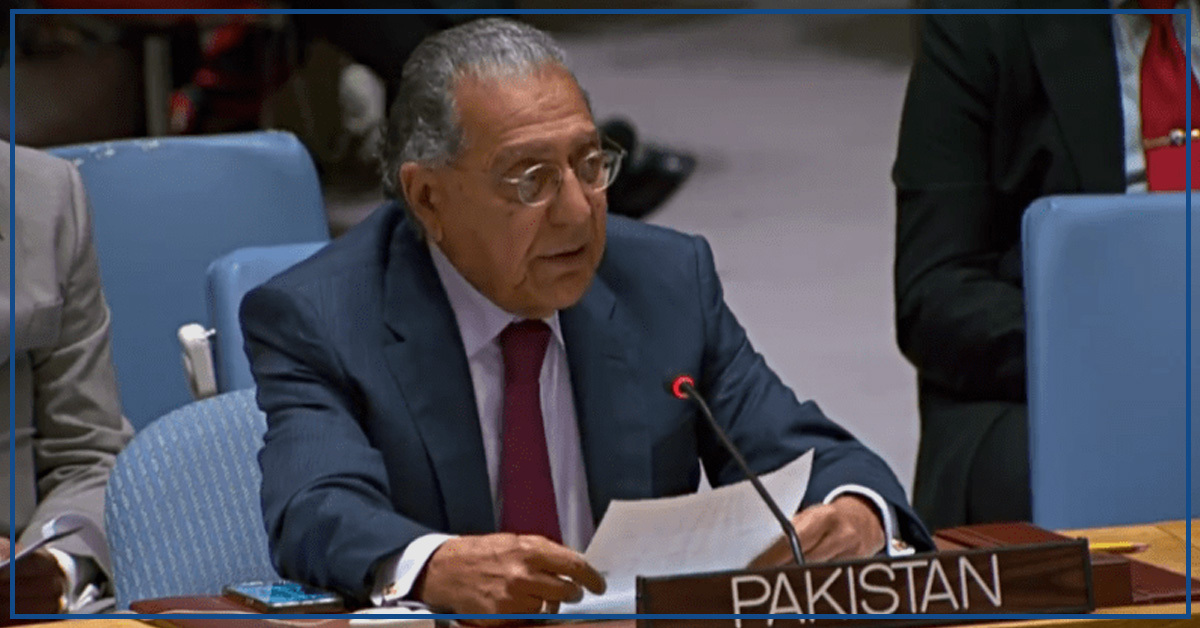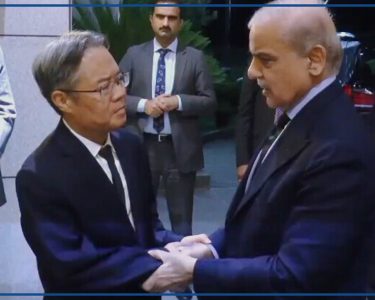Pakistan’s UN Ambassador Munir Akram warned the UN Security Council on Wednesday about a “serious threat of terrorism within and from Afghanistan,” highlighting the rise of Tehreek-i-Taliban Pakistan (TTP) as a potential “umbrella organization” that could destabilize the region.

Akram, addressing the Security Council during a meeting on Afghanistan, noted that the banned TTP, although separate, is aligned with the Afghan Taliban and has intensified attacks on Pakistani security forces since a fragile ceasefire ended in November 2022. He described the TTP, referred to as Fitna al Khawarij in Pakistan, as the largest terrorist organization in Afghanistan, conducting nearly daily attacks against Pakistan with the backing of the Afghan Interim Government (AIG) and support from Pakistan’s adversaries.
The ambassador reiterated Pakistan’s concerns about the presence of terrorist groups, including the TTP, in Afghanistan, accusing militants of using Afghan territory to launch attacks on Pakistan—a claim Kabul denies. He stressed that the TTP is quickly emerging as an umbrella organization coordinating with secessionist groups like the Majeed Brigade and warned that its long-standing ties with Al-Qaeda could position it as a key player in Al-Qaeda’s regional and global terrorist ambitions.
Akram called for global attention to the threat posed by a strengthened TTP and affirmed Pakistan’s readiness to cooperate with regional and international bodies to counter this menace, while also committing to take national action against the group.
He expressed Pakistan’s support for a peaceful and stable Afghanistan, emphasizing the importance of political inclusivity for stability. However, Akram raised concerns about ongoing human rights violations under the Afghan interim government, particularly regarding the treatment of women and girls, and condemned measures that silence their voices.
The ambassador also addressed the humanitarian crisis in Afghanistan, stating that three years after the Taliban took power, 23.7 million Afghans are in urgent need of assistance. He urged the international community to provide unconditional aid, stressing that the Afghanistan Humanitarian Needs and Response Plan, which requires $3.06 billion, has received less than 25% of the needed funding.
Akram called for immediate action to fully fund this plan and mobilize resources to alleviate the suffering of the Afghan people. He reiterated Pakistan’s commitment to supporting Afghanistan’s economic recovery, advocating for the revival of its banking system and the unfreezing of national reserves.
He urged the Afghan interim government to fulfill its international obligations, warning that policies fostering instability cannot continue unchecked. Akram emphasized the need for the international community to maintain its objectives in Afghanistan and engage with the Taliban in a clear direction, aiming for normalization and eventual integration into the global community.
To this end, he proposed building on the recommendations of the Secretary-General’s Special Coordinator, Ambassador Feridun Sinirlioglu.





